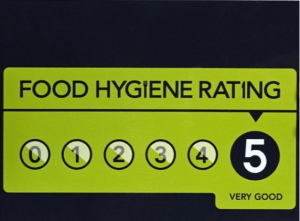
7 Reasons to Consider a Career in Environmental Health

Introduction
Environmental health is a branch of public health protection that is concerned with all aspects of the natural and built environment that may affect human health. It is understanding how the health and wellbeing of individuals and communities are affected by their physical environment.
Environmental health services are particularly concerned with aspects of the environment that can present a risk to health, such as poor housing, a safe supply of food and water, the control of pests that can spread infection, poor air quality, and nuisance noise. By addressing these issues, environmental health makes an important contribution to improving the wellbeing and public health of people and communities.
Although environmental health can trace its origins to the 1800s, when bad housing, poor water supplies, inadequate drainage, and contaminated food caused disease and death in Europe, the current pandemic has demonstrated that the environmental health profession has never been more vital.
Thinking of undertaking studies in this vital area? Here’s a closer look at seven reasons to study Environmental Health.
1. Environmental Health is a broad career
Environmental health is a subject that knows no bounds. Environmental Health Professionals work in all types of businesses including local authorities and government departments, retailers and hotel chains, regulators and enforcement agencies, the NHS and the armed services, academia and the third sector, charities, and global corporates as employees or as consultants.
There is currently a Shortage of Environmental Heath Practitioners in the UK and we need to take action immediately to protect the public and environment’s health.
Unlike with some professions, Environmental health has a wide range of options that you can choose from. The following are some of the areas that you can specialise in:
a) Health and Safety
In this line, you will be championing health and safety at work. You will be at the forefront of protecting people from possible harm by visiting workplaces to make sure that they are safe as well as investigating accidents and work-related illnesses.

b) Public Health
If you choose to specialise in public health, you will be helping individuals and communities to stay safe and well by protecting them from threats to their health and wellbeing. You may support healthy lifestyle programmes, help individuals and groups to stop smoking and exercise more, work in Covid Track and Trace programmes and screening, or play an important role in national and local health campaigns.

c) Food Hygiene & Safety
The food safety area involves inspecting food premises and investigating outbreaks of food-borne illness. Your role will be to ensure that food is prepared, handled, stored and served hygienically.

d) Housing Standards
Opportunities for assessing risks to health from poor housing are plentiful. Whether inspecting rented accommodation, helping vulnerable owner-occupiers, dealing with a housing association to discuss a work programme or advising the government on new legislation to improve the quality of student accommodation, no 2 days will ever be the same.

e) Environmental Protection
Growing public awareness, and greater scientific understanding, of the impacts of our physical, built and natural environment on human health, have pushed environmental protection up the political agenda. Environmental protection involves air quality monitoring, dealing with noise pollution, assessing smoke, dust, and odour pollution, evaluating land contamination as well as undertaking emergency pollution incident investigations.

2. Making a positive impact in society
Taking a career in Environmental Health puts you in a position to impact the current and the future generation in a positive way. Over 12 million people around the world die every year because they live or work in unhealthy environments. Environmental health professionals focus on reducing people’s exposure to harmful pollutants in the air, water, soil, food, and materials in homes and workplaces.
3. You are a public health advocate
Environmental health is a key part of any comprehensive public health system. Environmental health works to advance policies and programs to reduce chemical and other environmental exposures in air, water, soil and food to protect people and provide communities with healthier environments.
4. You can work anywhere in the world
Another great thing about a career in Environmental health is that you will not be limited to one specific geographic location. Accredited courses are accepted worldwide, and opportunities are available in countries such as the USA, New Zealand, Australia, and Canada. There are also opportunities in the developing world where Environmental health professionals work to ensure the sustainable development of communities.
5. You are in a better position to understand our role on this planet
Health is our most basic human right and one of the most important indicators of sustainable development. We rely on healthy environments to support healthy communities and societies. Well-functioning environments provide goods and services essential for human health. These include nutrition and food security, clean air and freshwater, medicines, cultural and spiritual values, and contributions to local livelihoods and economic development. The work of environmental health professionals can also help to limit disease and stabilise the climate.
6. Enjoying the outdoors while working.
Most white-collar jobs involve sitting behind a desk, staring into the screen while crunching on the keyboard. However, when it comes to an environmental health career, you will have several fieldwork days. You may work on problems ranging from improving recycling and waste disposal to water and air pollution control, or you may be called upon to inspect industrial facilities to ensure they are compliant with environmental regulations, advise businesses and government agencies about procedures for cleaning up contaminated sites.
7. An attractive salary package.
The average permanent environmental health officer salary in the United Kingdom is £41,000 per year or £40.00 per hour as a contractor. Entry-level positions start at £28,000 per year while more experienced officers make up to £64,000 per year or up to £75.00 per hour.
Conclusion
From the above, we can see that Environmental health is an excellent career choice. Wherever your career takes you, you’ll be doing work that is challenging and worthwhile. For most Environmental health practitioners, it’s not just a job but a vocation.
The Environmental Health career has numerous merits that you can enjoy. However, this article narrows down to discuss the following seven reasons for choosing it as a career:
- Environmental health is a broad career
- Making a positive impact in society
- You are a public health advocate
- You can work anywhere in the world
- You are in a better position to understand our role on this planet
- Enjoying the outdoors while working
- An attractive salary package.
Author
CEO & Founder of Buckingham Futures
Buckingham Futures HQ
We are dedicated to providing our exceptional recruitment and consultancy services to you. With our team of specialist recruitment consultants, they will be able to assist you in your queries and job hunt.
Give us a call on 020 8125 4321 or email your CV to info@buckinghamfutures.com and let’s have a chat!
“Recruiting the Present, Inspiring the Future.” ~ Buckingham Futures


Share
Facebook
Twitter
LinkedIn
Telegram
Tumblr
WhatsApp
VK
Mail